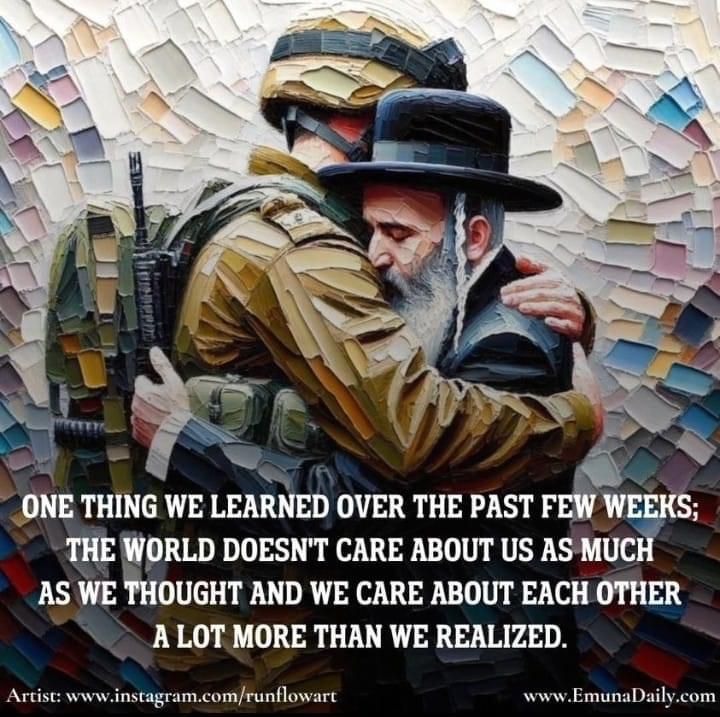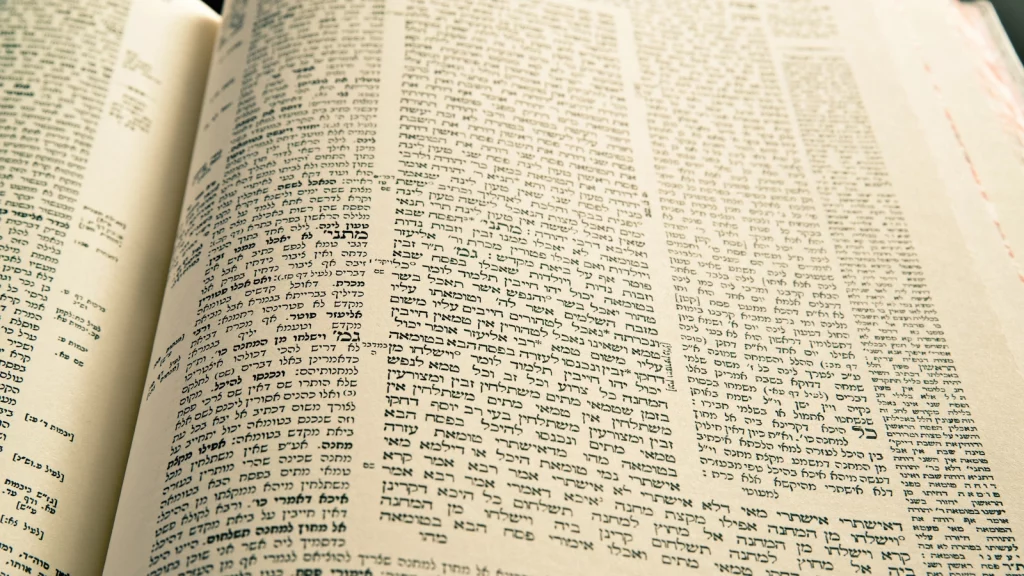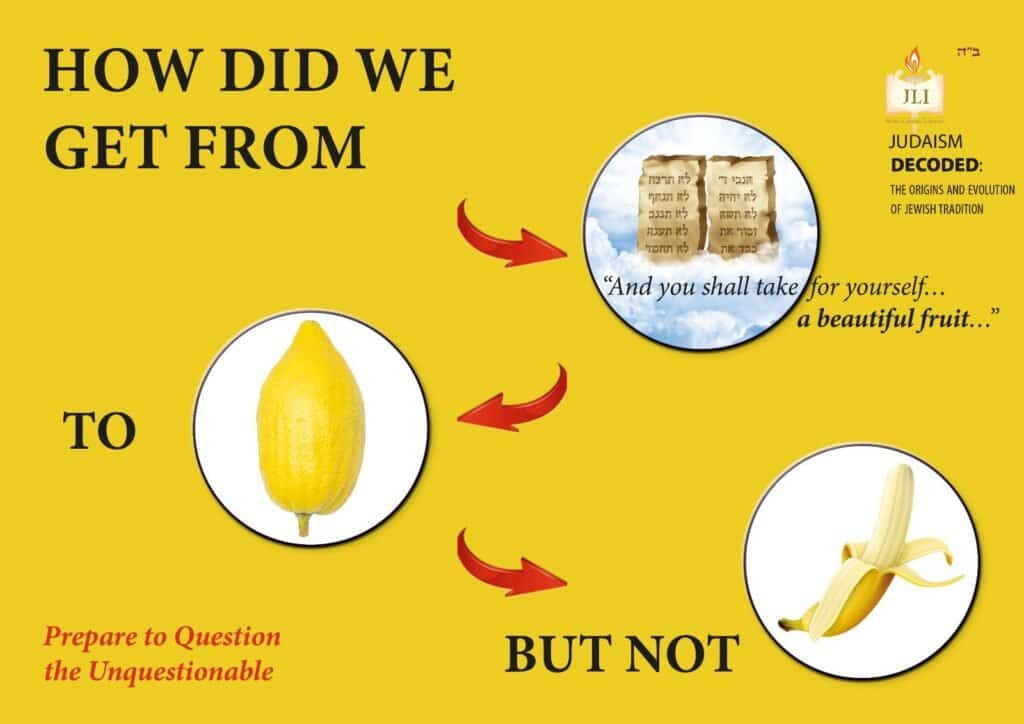In 1933, during his inauguration speech, President Franklin D. Roosevelt said these immortal words, “First of all, let me assert my firm belief that the only thing we have to fear is…fear itself — nameless, unreasoning, unjustified terror which paralyzes needed efforts to convert retreat into advance.”
Fear mutates. For about two weeks after the horrific attacks against Israeli citizens on Simchat Torah, 7th October, Jews around the world were fearful for Israel, its citizens and even for its survival. Talk was all about the serious existential threat to Israel and about the pain of those immediately affected by those barbaric and murderous acts.
Subsequently, as Israel went onto the military offensive and world opinion began to change against it, coupled with all the negative reporting and coverage of the war effort, the “World’s Longest Hatred” began to rear its ugly and vicious head.
The result? Diaspora Jews began feeling fearful for themselves.

Some people have removed the Mezuzot from their front doors, whilst others have removed their kippot. Some are afraid to attend synagogue services, and others have chosen to side with the enemy.
Fear is a natural human emotion, and it is something that everyone experiences in their lifetime. Fear is programmed into the nervous system, and it gives one the survival instincts needed to keep safe. For example, if one sees a poisonous snake in the garden, and the fear of snakes prompts one to run away and seek help, then this feeling of fear is natural and helps keep one safe.
But other fears are unhealthy and unnecessary. Sometimes, this makes one overly cautious and may become psychologically damaging because it stops one doing things that may be important or enjoyable. What matters most is how one fights these fears, and whether one allows them to affect one’s life.
In the Exodus narrative we read how, after having killed the Egyptian taskmaster,
“Moses was afraid…and Pharaoh sought to kill him. (Exodus 2:14–15)
Asks the Rebbe, “Shouldn’t it be written the other way around? Because Pharaoh sought to kill him, therefore Moses was afraid.”
But no. It was only because Moses experienced fear that Pharaoh became empowered to seek his blood. Were it not for his fear, no harm could ever have befallen him.
Banish any thought of fear that may be lurking in the mind. To dwell on such a thought even for a moment is to surrender into the hands of one’s inner Pharaoh, whose sole desire is to destroy you.
What is the opposite of fear? Some say it is courage, or bravery. But is that correct?
Fear is the state you’re in and courage is what is needed to deal with that fear, so perhaps we should be looking to change that state entirely? What if you could move beyond fear? What if you didn’t have to do anything courageous because you just were no longer afraid? Then perhaps the true opposite (and antidote) of fear would be trust. For the Jew, this is Trust in G-d.
So, Trust in G-d should replace fear, anguish and sadness with optimism and hope.
In one of his brilliant analytical articles, the late Chief Rabbi Sacks, discussed the difference between “optimism” and “hope” and this is what he wrote:
“One of the most important distinctions I have learned in the course of reflecting on Jewish history is the difference between optimism and hope. Optimism is the belief that things will get better. Hope is the belief that, together, we can make things better. Optimism is a passive virtue, hope an active one. It takes no courage to be an optimist, but it takes a great deal of courage to have hope. But Jews have never – despite a history of sometimes awesome suffering – given up hope.”
The Late Chief Rabbi Sacks
On my recent visit to Israel, I noticed that one slogan appears everywhere, “Beyachad ne’natzach – Together we will be victorious”. Whilst victory is inevitable, unity is not and indeed needs to be created and worked on.
Many people have begun to realize that being Jewish is not something private and personal but something collective and historical. It means being part of an extended family, many of whose members we do not know, nor even agree with, but nonetheless feel connected by bonds of kinship and responsibility.
We are bound together by our faith in G-d and our determination to care for each other. In Israel, left and right, religious and secular, have scrambled to assist one another. Israelis, called up for reserve duty, have returned home from around the world. Families, evacuated from southern Israel, have been welcomed with open arms all over the country. In the Diaspora, Jewish communities have raised funds, and gathered in support and prayer for the people of Israel. Our unity has overcome our divisions.
The current tragic situation, must be channelled to replace division and strife, into unity and respect. This will give us hope and surely such hope will dispel any negative feelings of fear. Replace such thoughts immediately with healthy thoughts, positive thoughts, thoughts that lift one up. Think good thoughts and these will allow good things to happen.
During the period up to and including the Six Day war, the Rebbe not only encouraged us to have Trust and Faith, but to also do something practical and concrete. And so in that spirit I would like to recommend that men make a special effort to put on tefillin as often as possible, that women and young girls light Shabbat candles and that we place kosher Mezuzot on all our doors. As a service to the wider public, I am offering to check Mezuzot free of charge and to offer kosher replacements for £40 (Regular cost £55). Please contact me on 07885 538681.
Let us have Trust and believe that Beyachad ne’natzach! Am Yisroel Chai.


